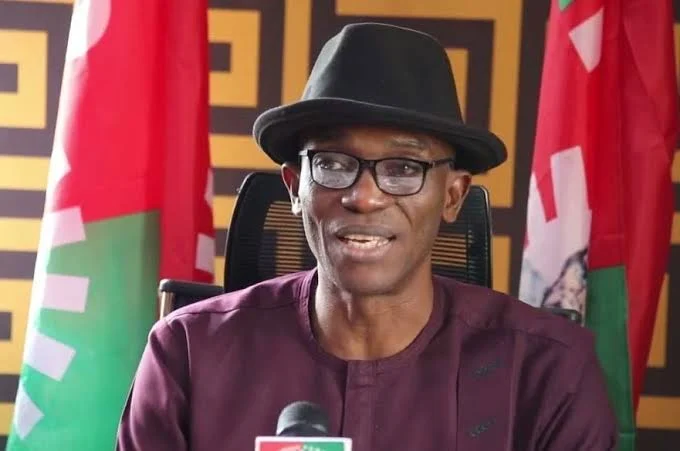Keyamo: Lagos Airport Rebuild Is Strategic Investment in Nigeria’s Global Image and Economic Future

Minister of Aviation and Aerospace Development, Festus Keyamo, has defended the ongoing ₦712.3 billion reconstruction of Terminal One at the Murtala Muhammed International Airport (MMIA), Lagos, describing it as a transformative and strategic investment for Nigeria not merely a renovation.
Keyamo made the remarks during a media briefing where he addressed concerns about the scope, cost, and timing of the ambitious project. He stated that the initiative is a forward-looking overhaul intended to reposition Nigeria’s aviation infrastructure on the global stage while enhancing economic competitiveness, national prestige, and passenger safety.
“The Lagos airport rebuild is not just about fixing a building; it is a strategic investment in Nigeria’s global image, economic future, and aviation infrastructure,” the minister asserted.
According to Keyamo, the MMIA terminal, originally commissioned in 1979, had become dangerously outdated. He described the structure as “decrepit and obsolete,” pointing to collapsing ceilings, leaking roofs, faulty carousels, and outdated systems that could no longer meet the demands of modern aviation. He stressed that patchwork repairs over the years had failed, and a complete rebuild was the only viable solution.
He also dismissed speculation that the project is a financial burden on the nation. He explained that the funding comes from the Renewed Hope Infrastructure Development Fund, a pool derived from government savings following the removal of fuel subsidies and the unification of the naira exchange rate. No loans were taken, and the project is not financed through the federal budget.
Keyamo revealed that Lagos airport currently generates over ₦200 billion in annual revenue, making it possible to recoup the ₦712.3 billion investment in as little as three years. He argued that continuing to operate the terminal in its dilapidated condition could lead to higher insurance premiums, reputational damage, and even the loss of airline services, which would be far costlier in the long run.
The minister outlined the comprehensive scope of the reconstruction, which includes building a new state-of-the-art terminal, expanding Terminal Two, constructing access roads and a ring road system, and creating a larger aircraft apron to accommodate wide-body jets. The project also includes solar power integration and a direct passenger bridge to the departure lounge, alongside a unified security screening system that would facilitate seamless, visa-free transit connections.
Beyond the physical infrastructure, Keyamo insisted the project would enhance Nigeria’s credibility as a regional air travel hub, especially since MMIA handles nearly 70% of the country’s total air traffic and often subsidizes underperforming airports nationwide.
Addressing criticism over the cost of the project, Keyamo urged Nigerians to benchmark the expenditure against similar global airport projects. He pointed out that airports recently upgraded in countries like South Africa, Angola, and the United States cost far more, yet offered less revenue potential than Lagos. He added that the Bureau of Public Procurement (BPP) had vetted and approved the cost, ensuring full compliance with due process.
To ensure transparency, the minister pledged that the government would regularly invite members of the media, lawmakers, civil society organisations, and the public to tour the construction site and monitor progress. He reiterated that there would be no room for secrecy or substandard work in the execution of the project.
This massive overhaul of MMIA is part of Keyamo’s broader aviation reform agenda, which includes strengthening regulatory oversight, improving safety standards, promoting bilateral air service agreements, and developing local maintenance, repair, and overhaul (MRO) facilities.
Industry analysts and stakeholders have described the project as long overdue and vital to Nigeria’s efforts to attract foreign investment, boost tourism, and position itself as a major player in African and global aviation.
With work already underway, the government projects that the new MMIA terminal will be completed on schedule, ushering in a new era for air travel in Nigeria and placing Lagos among the ranks of global aviation hubs.









